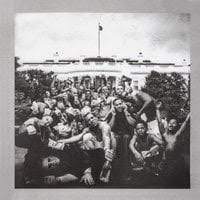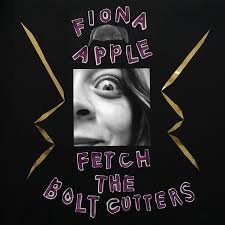Kendrick Lamar's Powerful Political Pieces
/gnx album cover art
Kendrick Lamar isn’t just any rapper, but one of the greatest rappers of the 21st century. His music involves deep introspection into his mind and its inner workings, his famous Hollywood lifestyle and how it affects him. Not only that, but he touches even more on the political state of America and how that too deeply affects him.
Politics is something that is vastly addressed by Lamar throughout his eight albums and something that countless people have praised him for. His authenticity and bluntness are traits not found in other rappers’ lyrics.
Lamar’s 2015 song “Alright” is deeply connected with the Black Lives Matter movement. In years after the songs release, protesters often would chant the chorus “We gon’ be alright.” In one line, Lamar sings “And we hate the po-po / Wanna kill us dead in the street for sure.” This line had a huge impact on Americans, as someone famous voiced what many already knew: police officers have been unlawfully murdering Black people. This line received hate from Fox News, with anchor Geraldo Rivera saying, “This is why I say that hip-hop has done more damage to young African Americans than racism in recent years.”
Clapback!
When I tell you Lamar got the last laugh, I’m not joking. He sampled this clip from Fox News on his 2017 song DNA,which ended up being named as the 31st best song of the year by Billboard and outplayed that clip by tenfold.
On his same 2017 album, DAMN., Lamar drops a song entitled XXX featuring U2 that explores politics on a deeper level. Lyrics including “The great American flag is wrapped and dragged in explosives” and
“Homicidal thoughts, Donald Trump’s in office / We lost Barack and promised to never doubt him again / But is America honest or do we bask in sin? … / You overnight the big rifles, then tell Fox to be scared of us / Gang members or terrorists, et cetera, et cetera / America’s reflections of me, that’s what a mirror does”
It comments on how Black people are often villainized for speaking up about the racism they face. Instead of lending a helping hand, those in power dismiss and quiet the fears that Black people are subjected to at the hands of the government and agencies like Fox News.
Kendrick lamar and obama via dani marsland
Kendrick X POTUS
Beyond his music, Lamar met with then-President Barack Obama, whom he mentions multiple times in his lyrics. During the meeting, they discussed how best to help underprivileged neighborhoods of America and how support and mentorship of youth is undoubtably important. Lamar admitted having a mentor shaped him into the person he’s become.
To Pimp A Butterfly
to pimp a butterfly cover art
His most political work by far is his 2015 album entitled To Pimp A Butterfly. The album cover depicts him and a group of fellow black friends in front of the White House, standing in front of a dead White State Senator. This image speaks on the racial inequality that is rooted in America’s justice system. Political themes remain a strength on songs such as “The Blacker The Berry”, “Hood Politics” and “Mortal Man.”
In “Mortal Man”, Lamar references multiple prominent Black leaders like Malcolm X, Nelson Mandela and Martin Luther King Jr. In the outro, Lamar includes excerpts from a 1994 interview with Tupac Shakur where he discusses a multitude of things from wealth to racism. For example, Tupac says, “The ground is gonna open up and swallow the evil… / And the ground is the symbol for the poor people / The poor people is gonna open up this whole world / And swallow up the rich people.”
Lamar doesn’t only discuss racial issues, but wealth disparities as well. He often notes the crossover between these two, as Black people are in many parts of America set up for economic failure. Because of the systemic lack of care, Lamar is aware of the disadvantages he and other Black people face. As a now-famous rapper, he is dedicated to being a beacon of light for youth who don’t see improvement in sight. He knows how it feels, as he speaks openly about being from a disparaged neighborhood himself. He knows how important mentorship and spreading information is. Lamar uses his platform for the best— to spread important knowledge on meaningful political topics.
Willow loves creativity. She can be very quiet sometimes. She can also get annoying with her weird tangents, but sometimes they’re interesting. She likes to relax, and play The Sims. She goes to Algonquin College currently in the Professional Writing program. She suffers part-time working hard at an unnamed restaurant. She enjoys crafts, artistic activities, listening to music, and hanging out with friends. She also loves therapy. That picture is not her.
















